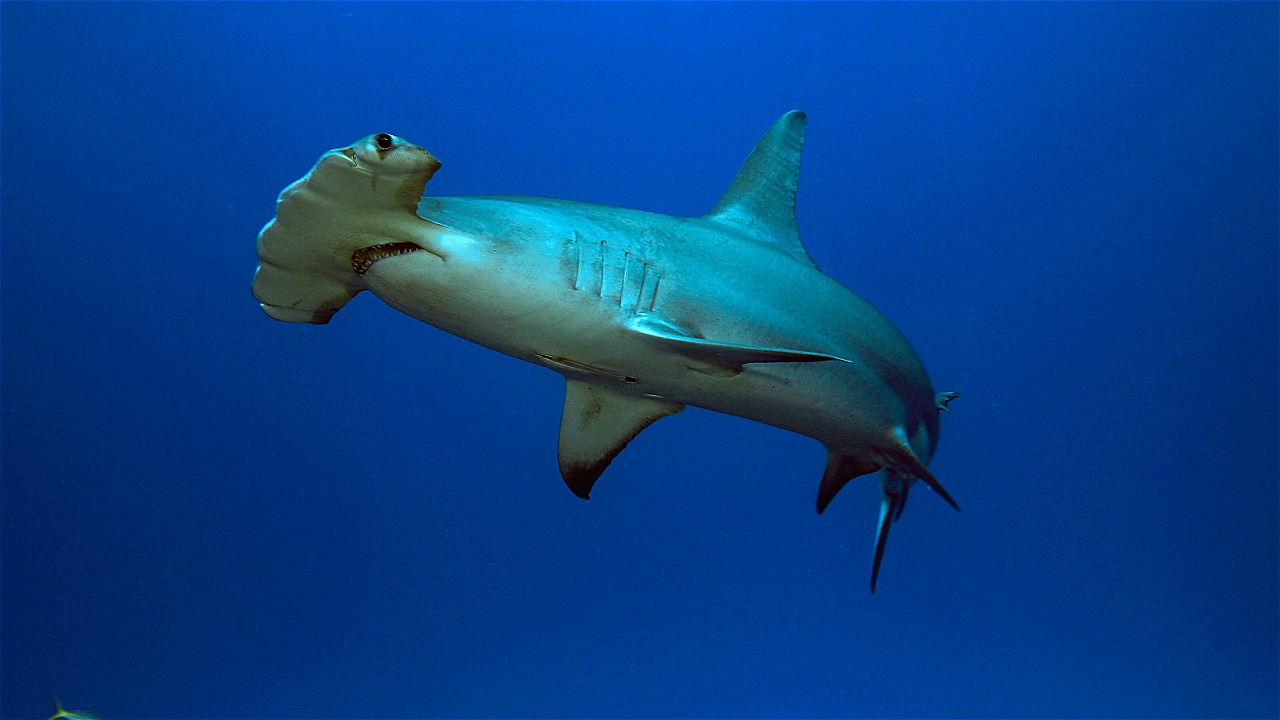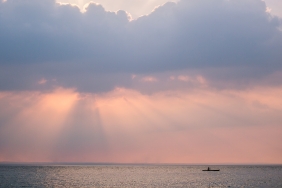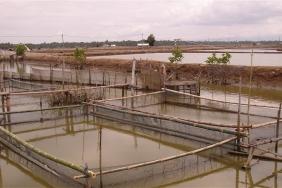2ND NATIONAL SYMPOSIUM ON SHARKS AND RAYS IN INDONESIA: TOWARDS SUSTAINABLE SHARK AND RAY MANAGEMENT
Jakarta (28/03) - Overexploitation of sharks and rays in Indonesia will lead to a decline in the population of both species. The government and the public should realize that it will take a long time to restore their existence. Moreover, the species that are caught have been included in Appendix II of the Convention on International Trade of Endangered species.
Minister of Marine Affairs and Fisheries Susi Pudjiastuti recalls a story from her childhood. She said that the presence of manta rays and whale sharks is a sign that there are many fish in the ocean. But the existence of manta rays and whale sharks, began to be rare when previously foreign ships were allowed to enter Indonesian waters.
"When I was a child, if a star shark came, it was a sign that the fish were coming. So it was welcomed with joy. If it is on the edge but not dead, it is usually pushed into the sea by the community. But increasingly, whale sharks are becoming a commodity that can be sold," said Minister Susi on the sidelines of the opening of the 2nd National Symposium on Sharks and Rays in Jakarta, on Wednesday (28/3).
"In addition, it turns out that there are policies and events that we all do not know. In the 2000s, one of our governments allowed fishing by foreign fishing vessels in Indonesian territory. We started to think, the fish are gone because of us. Maybe we are also part of the decline of our marine resources, but it turns out that this is not true. The biggest reason is allowing foreign ships to enter," he continued.
According to Minister Susi, by allowing foreign vessels to enter Indonesian waters officially, it will open up the massive arrival of illegal foreign vessels that are "wrapped" with 1-2 legal vessels in Indonesian waters. "These foreign vessels buy, consign and register as Indonesian-flagged vessels. Greed and greed affect them. There should be 10 ships in the sea, but in fact there are 20. They can multiply the number with just one license. The color is the same, the number is the same. These ships are of extraordinary size. More than averages than Indonesian ships, "explained Minister Susi.
This is the reason for the government, in this case the KKP, to eradicate fish theft. This decision is proven through the results of research by the University of California Santa Barbara together with the Marine and Fisheries Resources Research Agency (BRSDM KP), currently the sustainable fish stock has reached 12 million tons. In addition, some fish that were once rare have now reappeared. "In Probolinggo, I witnessed it myself, there were two dozens of tails running to and fro. In Kaimana, Gorontalo, which had not been seen for more than 10 years, now there are more. That is a sign that our marine health is improving," he said.
A sustainable management approach is the recommended choice, by carrying out conservation efforts in order to preserve resources so that they can provide benefits on an ongoing basis. This is because the biological characteristics of sharks and rays have relatively low reproductive rates, long sexual maturity ages and slow growth. He also asked the local government to communicate with the community and fisheries extension workers to prohibit the capture of sharks and manta rays.
"We all have to give an understanding that manta rays and sharks must live in areas that are still fertile and productive. So if there are still big fish, it means, other fish are still there. So the local government must be active. Please don't take parimanta," he added.
On the occasion, Minister Susi expressed her desire to create a gathering place, named 'Balai Bengong'. Later in the place will be facilitated television, CD and DVD about the wealth of Indonesian seas. This place is one of the educational facilities for the community, especially children, about how beautiful the underwater scenery is. He also invited local governments and non-governmental organizations (NGOs) to participate in the establishment of the place.
"Maybe the conservation foundation can help. Because from here, children will be able to watch the richness of nature, can watch about the ugly (influence) of plastic waste," he added.
Minister Susi hopes that this symposium can provide recommendations and actions, and can collect the latest data and information on the status of shark and ray populations, as well as the level of sustainable use based on science. "This is advice for us. After this, we should take action. We should visit and campaign to seafood restaurants to say stop selling shark. You can do it with stickers, t-shirts," he said.
This symposium invites academics, researchers, and practitioners to contribute to management by submitting research abstracts related to the subthemes carried out related to aspects of Biology, Population, and Ecology; Socio-Economic and Institutional; and Management and conservation.
The four themes presented at the symposium on March 28, 2018 were: (1) Strategies for Implementing Regional Fisheries Management Organization (RFMO) Resolutions related to Shark and Ray Bycatch; (2) Global Trade Issues in Sharks and Rays; (3) Indonesia's Role in Supporting Sustainable Management of Shark and Ray Resources; and (4) The Role of Sharks and Rays in Conservation Comrade Management: Lesson learned from the Bird's Head Seascape of West Papua.
While on March 29, 2018, the themes presented were: (1) Global Status of Shark and Ray Conservation Potential and Efforts; (2) Socioeconomic Aspects of Shark and Ray Management; (3) Urgency of Threatened Shark and Ray Species Assessment and Research in Indonesia; and (4) Shark and Ray Tourism.
With the National Shark and Ray Symposium, it is also hoped that it can attract 75 speakers related to shark and ray resources as well as symposium proceedings that have passed the expert review process, so that they can be used as a reference in the preparation of the latest print of the Shark Fisheries White Book in Indonesia and recommendations for shark species management policies that have not been regulated in RFMO, CITES laws and regulations in Indonesia.
*Source: Press Release Bureau of Cooperation and Public Relations of the Ministry of Maritime Affairs and Fisheries - Lilly Aprilya Pregiwati, Head of Cooperation and Public Relations Bureau
Note to the Editor:
- The Second Shark and Ray Symposium was organized by the Fisheries Research Center of the Ministry of Maritime Affairs and Fisheries together with WWF-Indonesia, Conservation International Indonesia and Misool Baseftin.
- This scientific forum was held at the Ministry of Maritime Affairs and Fisheries.
- This scientific forum aims to collect the latest research results on shark and ray resources conducted in Indonesia, as well as address shark management needs, especially those that have been threatened with extinction in the IUCN or are of concern at the international level such as CITES and RFMOs.
- The first shark and ray symposium was held in 2015 and has provided useful policy recommendations to date through the resulting policy briefs.
For more information on the speakers and selected papers, please visit www.srs-indonesia.org.





